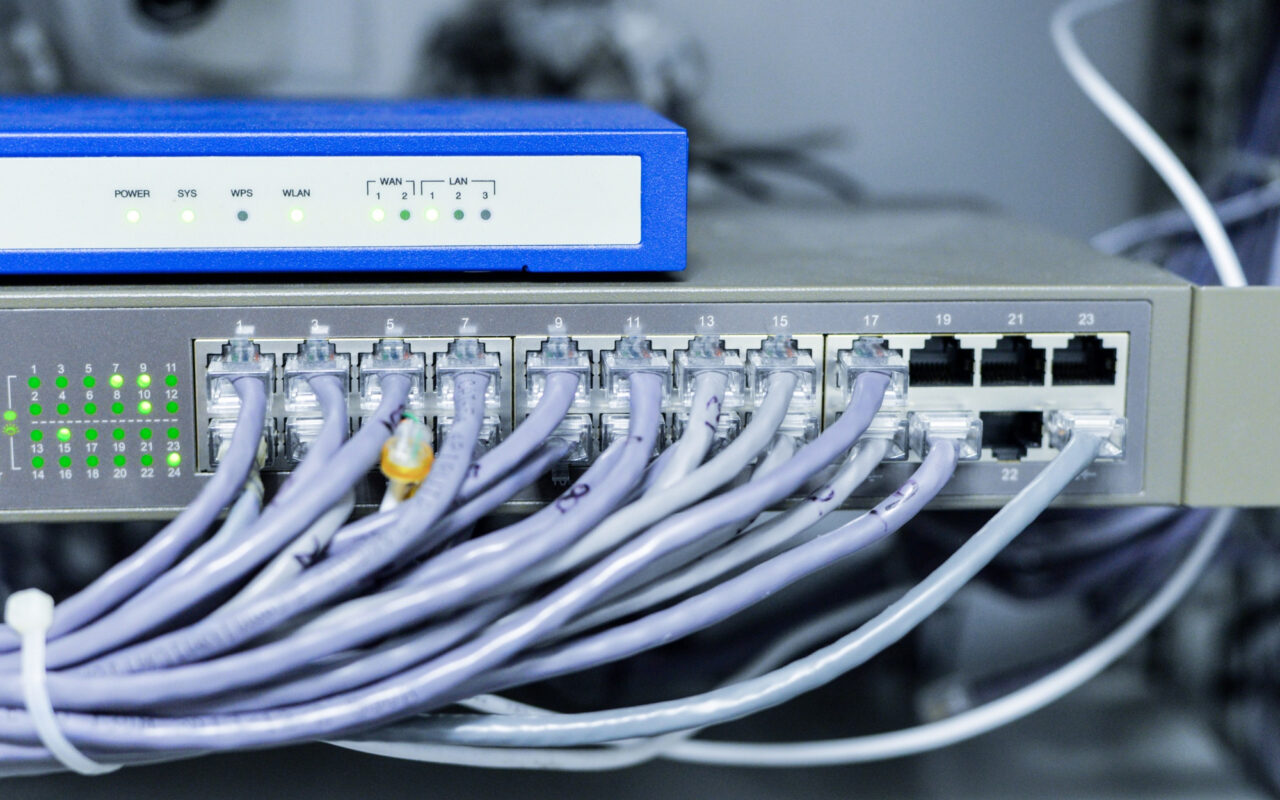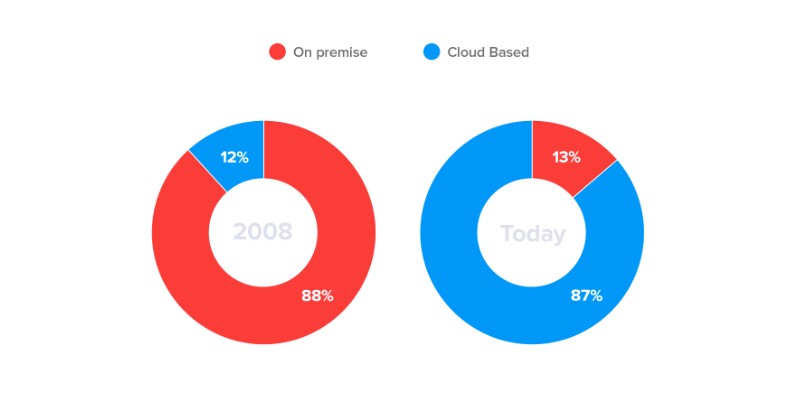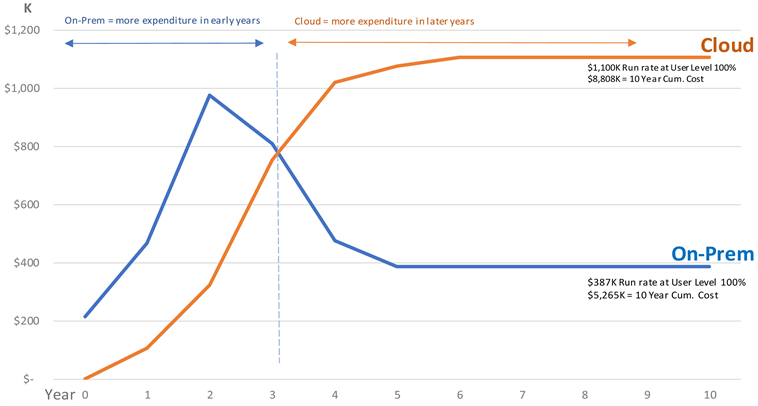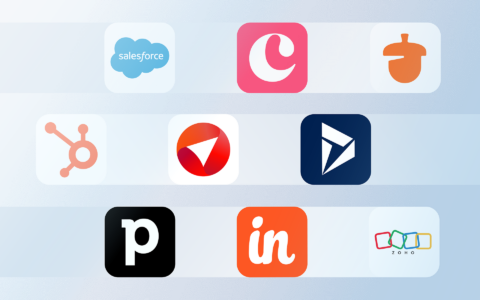
In online discussions, business representatives are still asking for recommendations for CRMs that they could install on their own servers. On premise CRMs are obviously not dead yet. How good are on premise solutions in terms of security? And for which companies are they ideal?
The cloud has been making its way to companies around the world for quite a long time. Today, however, the whole world is convinced of the benefits of cloud solutions. This trend is unquestionable and the statistics speak for themselves. Since 2008, the ratio of on-premise CRMs to cloud has even reversed.

Among the 13 % of companies that still prefer on premise CRMs are not just latecomers who have not yet decided to switch to the cloud. Sure, the cloud pays off for most companies, it's convenient and worry-free, but many entrepreneurs still actively seek out on-premise software today. And one of the most common reasons for preferring a seemingly outdated solution certainly is not any nostalgia.
Concerns about the cloud
At a time when we hear about hacker attacks on a daily basis, many companies are not switching to a cloud solution out of concern for business data security. With cloud CRMs, you must leave the security of customer data to the software provider. This way you risk opening up your data to a cloud storage administrator, but what is the alternative? Sure, an on-premise CRM.
The two key questions when choosing a CRM system should be:
- How sensitive is the company data and how important is its security?
- Do you have the necessary IT infrastructure and staff to deal with security on your own?
If you find that managing and securing your data on your own doesn't pay off, at least check with a software provider to see how they will encrypt and secure your data.
If you already have an IT department and your own servers ...
Companies with their own servers and IT specialists have complete control over security. You can schedule data backups or software upgrades as needed. However, the investment in our own infrastructure is considerable and is not born overnight.
Do you already have your own IT department and servers? Then the decision-making process should be simpler, as the on-premise CRM option is suitable. The advantage of the cloud is that the price of the monthly payment includes, in addition to the license to use the software itself, also the costs of the server, its maintenance, and the like. With a one-time purchase of on-premise CRM, however, it is possible to save on monthly licenses in the long run. As soon as you go through the initial phase, which is associated with higher costs for implementing software on your own servers and with a higher purchase price for a lifetime license, you will be saving every month since then. Like when you buy your own apartment on a mortgage.

Source: https://www.scirp.org/journal/paperinformation.aspx?paperid=87661
But price is not everything. If you store sensitive customer data, then security should always be a priority. Especially in healthcare or finance, security assurance is a must. Often clearly defined by legislation. Ultimately, it does not matter if your data is on the cloud or your own server. After all, hackers attack both, company servers and cloud storage.
The quality of security on your own servers depends primarily on the IT department, which must do a really good job in order for security to truly surpass that of the cloud. On premise CRMs are therefore ideal, for example, for IT companies or larger companies with their own IT department.
Don’t worry about the connection
The advantage of your own server and on-premise CRM is that it does not require users to have an internet connection to access business data. The CRM can also work offline, and as soon as it reconnects, the data is synchronized with the company database later.
The possibility to work offline may not be the most important parameter when deciding between cloud and on-premise CRM, online connection is really all around us, but there are still many situations in which you can work only with on-premise CRM. Whether it's due to a problem with mobile data, a trip to quiet nature, or on an airplane.
Conclusion
Deciding between a cloud and on-premise CRM may not be easy, even with the current trend, whose numbers speak clearly in favor of the cloud. Some companies may be interested in on-premise CRMs because of the possibility to work offline or because of the lower costs in the long run.
Despite those positives, however, the issue of security should be key. If you have your own IT department, make sure that they can handle the CRM implementation and that they will have the capacity for regular updates, backups and other maintenance. Without it, potentially safer on-premise solution will always be more vulnerable. So, evaluate which option is more suitable for you and then you can choose CRM based on other parameters.











